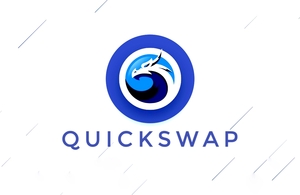What are Decentralized Futures?
Corps
A very popular trading category in the global financial market is futures trading. Futures trading is a type of financial derivative that allows individuals to speculate on the future price movements of an underlying asset, such as a commodity, stock, currency, or cryptocurrency. It is very common, comes along with several benefits and has a prominent reputation among crypto traders.
Crypto futures trading is a financial contract in which two parties agree to buy or sell a specific amount of a cryptocurrency at a future price and date. It allows traders to speculate on the future price movements of a cryptocurrency without owning the underlying asset. At most times, this type of trading occurs on centralized crypto exchanges who control trading activities. With the rise of DeFi solutions and DEXs, futures trading has invaded the decentralized market as well. This article will dive into decentralized futures.
Decentralized Futures
Decentralization has developed to be a popular aspect of crypto due the fact that it entails crypto and blockchain activities that need no middleman. Decentralized futures, or DeFi futures, are blockchain-native derivatives contracts that use smart contracts to automate the terms of contracts, thereby removing the need for middlemen or centralized exchanges. Settlement happens automatically on-chain when the contract terms have been fulfilled without the need for any central control. In addition to that, a number of decentralized exchanges that offer decentralized futures provide users the option to use leverage. Leverage is a way for decentralized futures traders to increase their potential gains (while the risk may also increase) by investing a small amount of capital upfront.
Benefits of Decentralized Futures
As indicated earlier on, decentralized futures come along with so many benefits for users who want to trade with small amounts or predict the price of crypto coins in the future. Below are some of these advantages of decentralized futures
There is the chance to use leverage: One benefit of decentralized futures make available for users is the ability to use leverage. The futures contracts allow traders to gain exposure to the underlying asset with a smaller investment. This is due to the fact that they can enter into a contract with a lower margin requirement, which means they only have to put up a small percentage of the total contract value.
Enhanced liquidity: Futures markets are typically more liquid than spot markets, making buying and selling contracts at fair prices easier. Traders can enter and leave positions more quickly as a result of this. Furthermore, the ability to use leverage enables traders to reserve some of their initial capital for other market activities, thereby enhancing their liquidity in the crypto space.
Short selling: In an usual spot trading, traders buy a coin and wait for it to go up in price to cash out profits. They however lose value on their assets when the price of the coin goes down. Decentralized futures addresses this in a fascinating way. Due to the fact that users are able to bet on any direction the market may move, there is the option to short sell a futures contract. With this, the decentralized futures contracts allow traders to short-sell or bet on the price of an asset going down. This is a feature not available on the spot trading market.
Diversification: Futures contracts can diversify a trading portfolio by gaining exposure to different assets, including cryptocurrencies, that may not be easily accessible through traditional means.
Decentralized futures trading ensures diversification since traders are able to select a number of assets to trade at the same time, even with limited amounts by using leverages. There is also participation by everyone. A hallmark of decentralized futures trading is as it names foes, decentralization. The funds of users are within the control of users and not any central control. All a user needs is to connect their wallet to a particular DEX offering a decentralized futures contract and then they can make a desired market prediction.
Depending on the blockchain being used to run the contract, fees are mostly lower on DEXs offering decentralized contracts as compared with centralized exchange futures. A typical example of a DEX that offers low fees is QuickSwap which is built on Polygon, a blockchain network with one of the lowest fees in the crypto space. Users can participate in decentralized futures trading here as they exercise control over the ownership of their assets.
Conclusion
Futures trading is a type of financial derivative that allows individuals to speculate on the future price movements of an underlying asset. Decentralized futures trading offers several benefits, including the ability to speculate with a relatively small amount of capital, low fees, control over assets and funds and widened participation by everyone in the crypto space.











commentaires